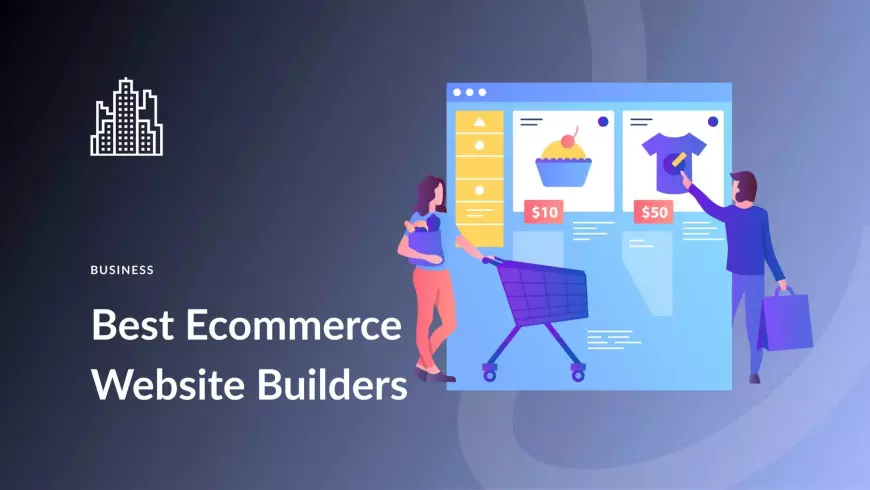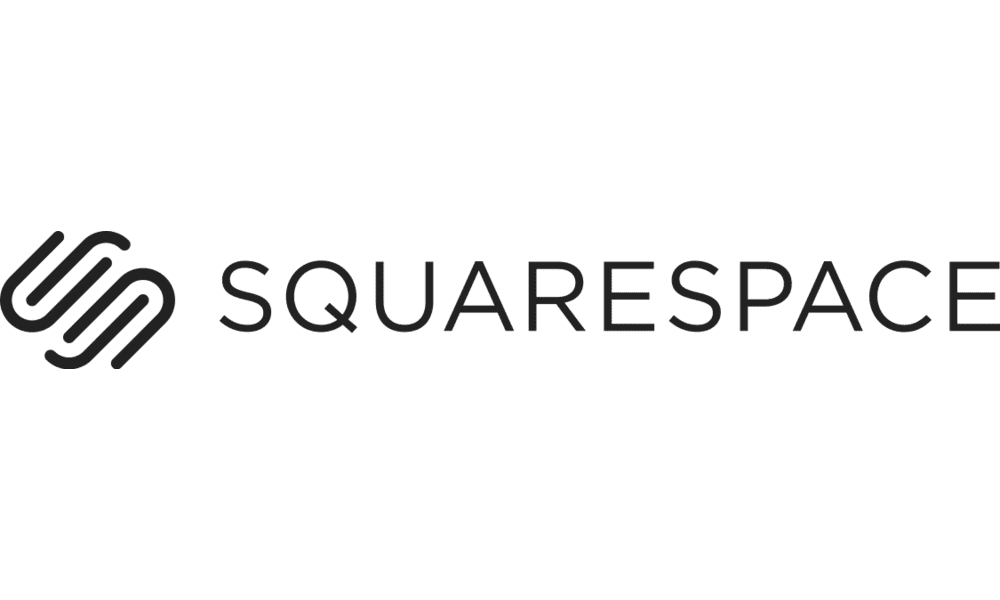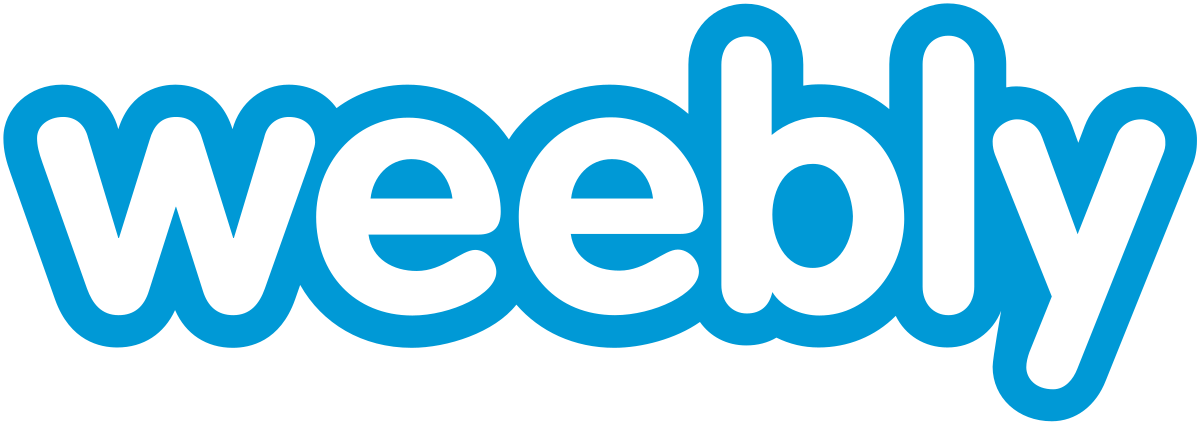The best e-commerce website builders for 2024, tested and reviewed by Digimagg
Explore the best ecommerce website builders for 2024, offering powerful features, customizable designs, and seamless online selling experiences.

When it comes to creating an ecommerce website, there are numerous platforms available that offer the capability to build a website for selling products online, providing your business with an additional avenue for sales and revenue.
Of the top 100,000 websites by traffic in 2024, over 30,000 have utilized a website builder.
Constructing a website with an integrated online store and ecommerce features empowers you to conduct sales both online and offline, be it through email or shipping to customer addresses. The beauty of it all is that you don't need advanced technical skills; the best website builders simplify the process for you.
Below, we've highlighted our selections for the top ecommerce website builders, taking into consideration their ecommerce-specific features, customer support, pricing structures, and various other factors.
The top ecommerce website builders right now

Read Digimagg's Review
Wix is a versatile platform suitable for creating various websites, with a strong focus on ecommerce. Each paid plan includes a free domain, a user-friendly drag-and-drop site builder, and a wide selection of themes. Ecommerce-specific functionalities encompass abandoned cart recovery, automated sales tax, subscription management, and a booking platform for monetizing services and events.One notable advantage of Wix is its absence of commission fees per transaction, no restrictions on product quantity or transaction frequency, and unlimited bandwidth. The platform provides dedicated tools for marketing and analytics, with 24/7 customer support available for business subscribers via phone and chat.Wix has recently enhanced its ecommerce capabilities by introducing features like multi-channel sales, enabling direct selling on social platforms such as Instagram and Facebook. This integration streamlines inventory management from a centralized dashboard, facilitating wider audience reach and increased sales. Additionally, Wix now offers a feature for printing shipping labels directly from the dashboard.
 User-friendly interface
User-friendly interface Templates
Templates Mobile optimization
Mobile optimization.png) Template limitations
Template limitations.png) Limited SEO control
Limited SEO control.png) Platform lock-in
Platform lock-in
Read Digimagg's Review
BigCommerce stands out as an excellent choice for maximizing sales across various channels, seamlessly integrating with platforms like Facebook, Instagram, Google Shopping, Amazon, and eBay. The platform's versatile and user-friendly website builder employs a drag-and-drop mechanism.Offering an array of advanced features like customer management and bulk pricing, BigCommerce eliminates the need for third-party apps or extensions. The platform continually innovates, focusing on enhancing conversion rates and operational efficiency. Robust analytics and reporting tools provide deeper insights into customer behavior, inventory management, and sales trends, empowering strategic decision-making.BigCommerce has also improved its customization capabilities with new themes and an updated Page Builder tool, granting users more control over their store's appearance. However, due to its extensive features, the platform might be overwhelming for beginners, potentially leading to unnecessary expenses for features not utilized.
 Robust features
Robust features Customization
Customization Security and compliance
Security and compliance.png) Learning curve
Learning curve.png) Limited marketplace
Limited marketplace.png) Customer support
Customer support
Read Digimagg's Review
Shopify, while pricier than Wix, justifies its cost as the most powerful ecommerce-focused website builder. Boasting over one million active stores, each plan offers extensive features like web hosting, unlimited bandwidth, a built-in CDN, 70+ themes, and 24/7 customer service. Specific tools for dropshipping, abandoned cart recovery, shipping rates, and customer account management enhance its functionality.One standout feature is Shopify's in-house handling of ecommerce transactions for free, with transaction fees applicable only when third-party gateways are used. The platform provides Shopify Payments as a free built-in gateway and offers an app store for integrating with hundreds of third-party applications.Starting at $29 per month, Basic Shopify includes transaction fees, while higher-tier plans like Advanced Shopify ($299 per month) and Shopify Plus (starting at $2,000 per month) offer additional features such as gift cards and advanced reports. Payments can be made annually up to three years in advance.
 Wide range of templates
Wide range of templates App store
App store Security and reliability
Security and reliability.png) Customization limitations
Customization limitations.png) Dependency on apps
Dependency on apps.png) Customer support
Customer support
Read Digimagg's Review
Squarespace, a popular website builder, is particularly favored by the creative community due to its award-winning site templates suitable for various businesses. Offering polished and intuitive designs, Squarespace provides quality ecommerce features within its regular subscription plans.With a highly functional drag-and-drop editor, users can design diverse ecommerce stores, selling products, services, and digital goods. Squarespace includes built-in tools for website SEO and blogging, an analytics dashboard for detailed site performance insights, and a variety of apps. While it lacks a centralized marketplace for one-click app installations, users can inject their own code for unsupported third-party apps.For online stores, Squarespace offers plans starting from $23 a month for Business, with larger stores opting for Basic Commerce at $27 and Advanced Commerce at $49 a month. These plans feature 0% transaction fees and customer account management.
 User-friendly interface
User-friendly interface All-in-one platform
All-in-one platform Built-in features
Built-in features.png) Learning curve
Learning curve.png) Platform lock-in
Platform lock-in.png) Cost
Cost
Read Digimagg's Review
Established in 1999, Volusion stands as one of the pioneers in providing a website builder with ecommerce functionality. As of 2021, it boasted services worth $28 billion and hosted over 30,000 online stores.Targeting advanced users with ecommerce experience, Volusion is feature-rich, although its systems may pose a learning curve. Despite a limited selection of free templates, the paid ones are relatively expensive. Noteworthy features include abandoned cart recovery, product categorization, and customer data migration.Volusion's payment platform, Volusion Merchant Program, is exclusive to the US. For international users, credit card, PayPal, and Stripe options are available. The platform now integrates advanced analytics tools for real-time customer behavior tracking, purchase pattern understanding, and store optimization, catering even to users with limited data analysis background.
 Built-in features
Built-in features Design flexibility
Design flexibility Marketing tools
Marketing tools.png) Learning curve
Learning curve.png) Limited third-party integrations
Limited third-party integrations.png) Platform lock-in
Platform lock-in
Read Digimagg's Review
Weebly, a reliable hosting provider and website builder, offers a perpetual free plan, allowing users to launch a basic ecommerce site at no cost. For those requiring additional features, easy upgrades are available. The user-friendly drag-and-drop builder requires no coding skills, making it ideal for entrepreneurs venturing into online business. Weebly's affordable paid plans include features for shipping, inventory management, email marketing, analytics, and SEO tools.Notably, Weebly facilitates the tagging of out-of-stock products. It offers three paid plans, starting at $10 per month for the Personal subscription with ecommerce functionality. The Professional and Performance plans, priced at $12 and $26, respectively, include inventory and tax calculation, with the Performance plan supporting PayPal.A standout feature is the augmented reality (AR) tool, enabling customers to visualize products in their own space before purchase. The mobile app has been enhanced for efficient on-the-go ecommerce site management, allowing updates, order processing, and customer response from a smartphone.
 Built-in features
Built-in features Wide range of templates
Wide range of templates Affordable pricing
Affordable pricing.png) E-commerce limitations
E-commerce limitations.png) Dependency on Weebly
Dependency on Weebly.png) Limited app ccosystem
Limited app ccosystem
Read Digimagg's Review
Continuing the legacy of its predecessor, Zyro, this builder streamlines web creation with an intuitive drag-and-drop interface, making it perfect for those lacking technical expertise but aiming to effortlessly launch an online store.A major advantage is the access to an extensive library of royalty-free images, enhancing the visual appeal of your product listings and marketing materials. This ensures a professional look while avoiding copyright concerns. However, note that for advanced image customization, the platform's basic editing tools may limit creative flexibility.Hostinger stands out for its cost-effectiveness, offering plans starting as low as $2.99 per month, covering essential features like web hosting and domain registration crucial for initiating your e-commerce site. While rates increase after the initial period, they remain competitive, delivering good value for your investment.Beyond the fundamentals, Hostinger provides SEO optimization tools crucial for boosting your ecommerce site's visibility and traffic growth. With the prevalence of mobile shopping, responsive design templates guarantee that your site appears and functions seamlessly on any device, enhancing the overall shopping experience for customers.
 Affordable pricing
Affordable pricing Variety of hosting plans
Variety of hosting plans Performance and reliability
Performance and reliability.png) Limited features on entry-level plans
Limited features on entry-level plans.png) Upselling
Upselling.png) Migration costs
Migration costsWhat is an ecommerce website builder?
An ecommerce website builder is a specialized platform designed to create online stores for businesses, offering similar features and tools as standard website builders but with a focus on sales-specific functionalities. When considering the best ecommerce website builders, scalability is a crucial consideration, dependent on your current needs and growth potential. For beginners, platforms like Wix and Squarespace offer excellent plans, while Weebly is suitable for testing the waters. Shopify and BigCommerce are preferred choices for larger stores and enterprises. Evaluating each provider's strengths and weaknesses is essential, with features such as abandoned cart recovery, shipping calculation, and inventory management being key considerations. Additionally, a variety of payment platforms and user-friendly drag-and-drop interfaces are important factors to consider when making your choice.In evaluating the best ecommerce website builders, our approach closely mirrors our assessment of all website builders.Firstly, we thoroughly test the website builder and editor by creating a customized site. This allows us to gauge the complexity or simplicity of the builder and editor, providing valuable insights into the most suitable platform for your needs. Once the site is live, we conduct a two-week assessment of uptime and response time to ensure the builder's hosting performs effectively and keeps your site online.For specific ecommerce elements, we scrutinize the ecommerce tools, features, or plugins offered by the builder. By creating an online store, we evaluate how these functionalities compare to competitors. We also explore any unique service-specific areas that warrant testing.
In the realm of ecommerce, the importance of customer service and support knowledge and responsiveness cannot be overstated. We test both aspects for every ecommerce builder to provide a comprehensive overview of their problem-solving capabilities and responsiveness.
Lastly, we delve into the details of what each paid package offers, offering a thorough exploration of pricing to equip you with a comprehensive understanding of potential hidden or additional costs that may arise in the future.
Next steps with website builders
Explore whether investing in a small business website builder is the right choice and discover our tips for constructing an enterprise website to enhance your online presence.For those seeking an alternative, WordPress offers ecommerce functionality. You'll need to select a builder or plugin from the top website builders for WordPress and consider optimal WordPress hosting. It's worth mentioning that WooCommerce is one of the premier ecommerce tools designed for use with WordPress.Lastly, if you've chosen one of the aforementioned website builders and want guidance on creating a site with them, find out how to make a website with Wix, build a website with Squarespace, or create a website with Shopify.







































.png)








